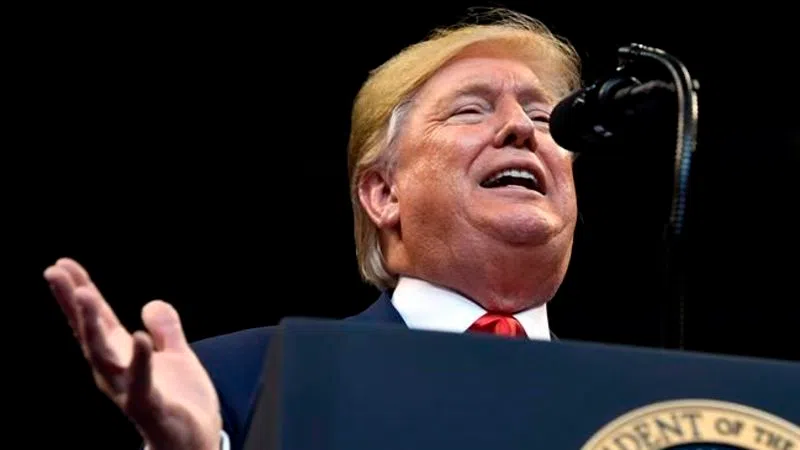
Trump knew of whistleblower before releasing Ukraine aid
WASHINGTON — President Donald Trump was briefed on the whistleblower complaint about his dealings with Ukraine before the White House released nearly $400 million in military aid to Kyiv, officials say, shedding new light on events that triggered the impeachment inquiry.
Trump was told about the complaint in late August in a briefing by White House counsel Pat Cipollone and John Eisenberg, an attorney with the White House National Security Council, according to two officials not authorized to publicly discuss the matter.
The lawyers told the president about the complaint, explaining that they were trying to determine whether they were legally required to give it to Congress, the officials said. The aid was released on Sept. 11 amid growing pressure from lawmakers.
The White House did not immediately respond to a request for comment.


